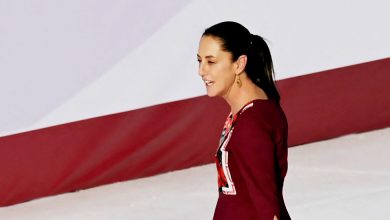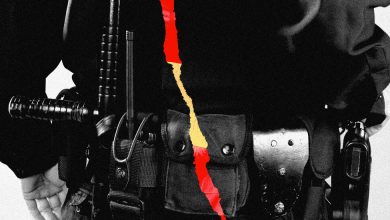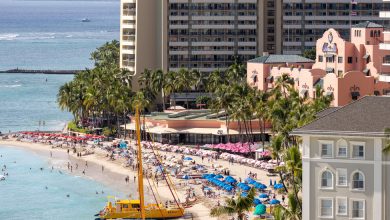How Covid Changed the Clergy in New York

During the deadliest months of the coronavirus pandemic, when many New Yorkers most needed their faith communities, houses of worship were either closed or operating with limits on attendance. The solace of grieving with family and friends, the comfort of the communal rituals of prayer and the joys of ceremonies celebrating births and weddings, were missing.
The absence took a deep physical, spiritual and emotional toll — not only on the faithful but also on clergy members who struggled to serve worshipers from afar. Congregants’ needs were unending. The ability of clergy to respond were at times limited by disease, distance and the number of hours in a day.
Priests, rabbis, imams and ministers leaned on the teachings of their faiths to comfort their flocks, and themselves. They also employed modern technology, including Facebook Live and Zoom, to pray with congregants safely.
This month, Ramadan, Easter Week and Passover overlap, and New Yorkers are gathering at their houses of worship, many for the first time in two years, now that many Covid-19 restrictions have been lifted. And although some houses of worship appear to be returning to a semblance of normalcy, conversations with clergy members revealed the profound ways in which the pandemic has altered their lives and their work.
The interviews below have been condensed and edited for clarity.
“Covid certainly called us to our knees”
Rev. Dr. LaKeesha Walrond
First Corinthian Baptist Church, Harlem

My grandmother would say that “trouble will call you to your knees.” It will change your position. Covid certainly called us to our knees.
Even while churches were closed, churches started to grow. More people tuned in online, including the spiritual but not religious. They were looking for answers and felt like those answers weren’t necessarily found in the traditional places of worship. There was certainly a coming home — a calling to invest in our own spiritual growth and to really ask the hard questions. What am I doing? Why am I here? And why was I spared?
While there’s been so much death and so much grief and so much sickness and so much mourning, Covid has also given us some gifts. The gifts of reimagining worship, of recognizing that the spirit of God is within and that we’re connected by our humanity, by our breath, and not only by a pew or a temple or a synagogue or a mosque or a church.
It’s helped us to reimagine what it looks like to be in ministry and to reimagine a future that can be even more inclusive.
It is wonderful to be able to gather in person again in communal worship, but there are folks who haven’t come back into church because of this continued evolving of Covid. It’s not over.
“It meant a new opportunity to rediscover my faith”
Rev. Manuel De Jesús Rodriguez
Our Lady of Sorrows Church, Corona, Queens
I will always remember the last Mass on Sunday, March 15, 2020, because it was like a funeral. The parishioners were crying and crying. The churches closed the next day because of Covid, and people were knocking on the doors out of fear. I remember being very disturbed by the feeling of not knowing what to do.
That Holy Week of 2020 was the first in history without the public. It was terrible celebrating all the rites with the church empty.
But it meant a new opportunity to rediscover my faith because of all the limitations, and the problems compelled believers to understand that faith was something even deeper. And we had much more time for prayer and a very, very deep need. There were so many deaths here in Corona, often several people from the same family.
I think now, after two years, that the faith of the people is stronger. I see a rebirth. People understand the value of the Eucharist and of a very personal relation with God. And we realize that everything we do affects our neighbors and can even mean death or life in certain cases. We belong to a family, to a community, that is one body, always connected.
“Our role in this pandemic wasn’t merely to sit at home and do nothing”
Imam Khalid Latif
The Islamic Center at New York University, Greenwich Village
I realized just how fortunate I am to be part of a community that is very caring and generous. At the onset of the pandemic, New York City’s systems were being overwhelmed. My students, and our broader community, recognized that our role wasn’t merely to sit at home and do nothing.
Over the course of the pandemic, we’ve probably raised, as a center, over $7 million in Covid relief funds. We ran campaigns to raise funds to support people of any background with micro-cash grants. We collected masks and gloves to distribute to hospitals and ran crowdfunding campaigns to help with funeral costs. We supported survivors of abuse who were stuck at home with their abusers.
This created an opportunity, albeit virtually, for us to step up as a community in ways that build cohesion internally, as well as provide support to those who were in need.
It became very clear early on that Covid would stick with us for a long time. Islam teaches me that my physical wellness is linked to my emotional, my mental, my spiritual wellness. I’m not going to be able to care for other people’s hearts if I’m not taking care of my own heart.
“There is no substitute for holding each other’s hands”
Rabbi Rachel Timoner
Congregation Beth Elohim, Park Slope
Many people were unable to be with their loved ones. They were unable to hold their hand. They were unable to even say goodbye to them. They were unable to bury them.
They were isolated and cut off from the human bonds that would normally encircle them as they grieve. And that was devastating for them, and it was devastating for me. And I think even though many of those conditions have changed by now, we have not had a chance to fully heal or even fully account for what that did to all of us.
We need each other. Judaism teaches us that the Shekhinah — the presence of God — is most clearly present when a group is gathered. So our ability to commune with the divine, to commune with God, is related to our ability to commune with each other.
There is no substitute for holding each other’s hands, for putting our arms around each other, for dancing together, for singing together, and we feel it acutely when it’s gone.
Covid has made me even more dedicated to the social justice imperative at the heart of Torah. The Passover Seder story of our enslavement, and our liberation, is the formative story for the Jewish people, and it reminds us that wherever we are there is oppression, and wherever we are, liberation is possible.
The chasm in our society between those who have and those who do not was on very painful display these last two years, in terms of who would live and who would die.
“If I’m going to help people, I have to heal myself”
Deokarran Jadubans
Shaanti Bhavan Mandir in Richmond Hill, Queens
As Hindus, we gather for worship in the temple and we feed off each other’s energy. We were accustomed to having 150 people before Covid, and having just 10 took a serious toll. You couldn’t feel the positive vibrations that you normally would feel.
When people started getting sick and dying, that took a different toll. I know quite a few people who lost faith in God, lost faith in themselves, lost faith in the system. I started to question my own faith.
As a spiritual leader in our community. I tried to keep our people together and improve their faith. We had to find ways of praying and creating this positive energy that can help others, rather than doing things that will have a negative effect on Mother Earth and the society in which we live. We started to do Zoom, phone videos and Facebook programs to keep their faith up and to let them know that we were still here for them.
I got more involved in meditation for my own inner self. If I’m going to help people, I have to heal myself. I started to focus more on myself as not only a spiritual leader, but as a husband and as a father.
“It’s OK if you wake up on Easter and don’t feel the sense of joy that many people expect”
Bishop Mary D. Glasspool
Episcopal Diocese of New York, Morningside Heights
In the Christian tradition, we talk about the body of Christ, and that has everything to do with physical presence, not just online presence. I’m such a physical person. What Christianity offers to the world is incarnation in flesh and the importance of presence. You can’t throw water at a screen and baptize a baby. And I don’t feel like you can have communion which is, in part, the gathering together of body parts.
I think what Christianity says is, that no matter what happens, there is something essential about touch, physicality and intimacy.
What sustained me during Covid was my morning prayers. As a matter of faith. I normally try to express my complete reliance on God. And in a sense, prayer is acknowledging that I’m not in control. I value not being in control. Covid showed the world that we are not in control
My morning prayer is a solitary prayer time, and that’s fine because that’s what it’s meant to be. But nothing substitutes for gathering with people, in the flesh.
In my Holy Week sermons this month, I want to remind people that if anyone is still in a place of fearfulness, if the world feels a bit chaotic right now, that it’s OK if you wake up on Easter and don’t feel the sense of joy that many people expect. It takes time.





